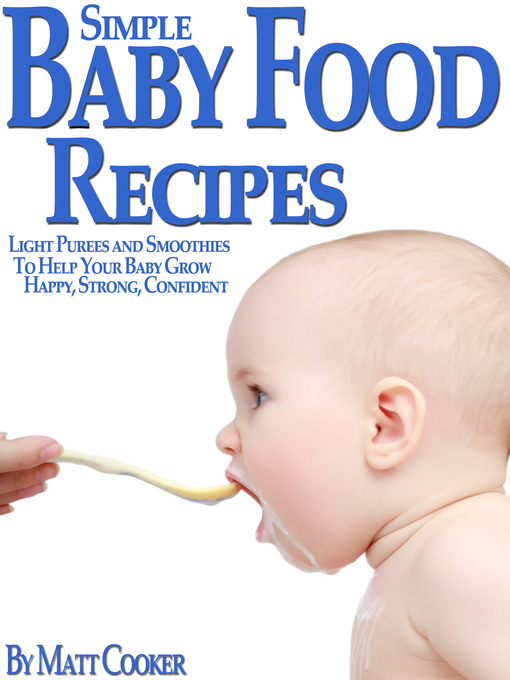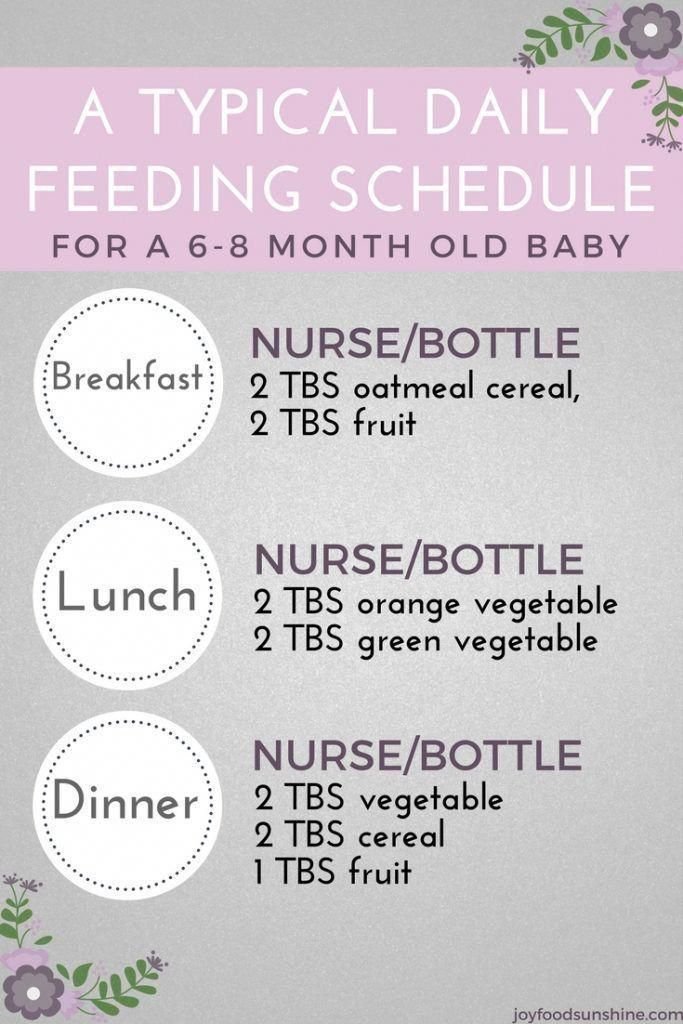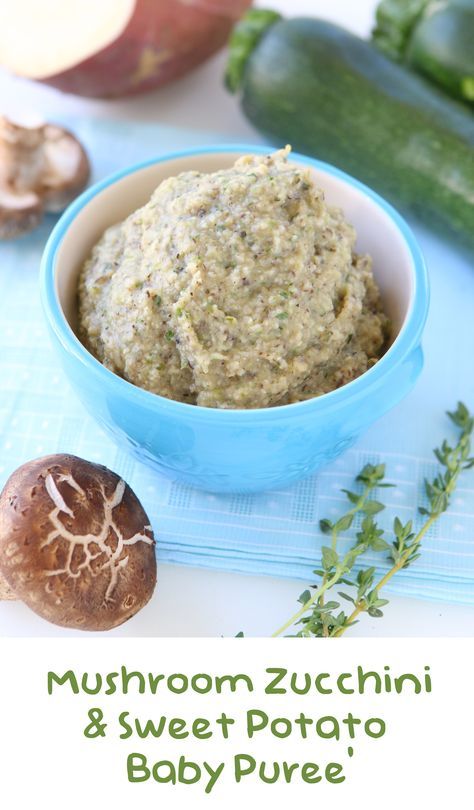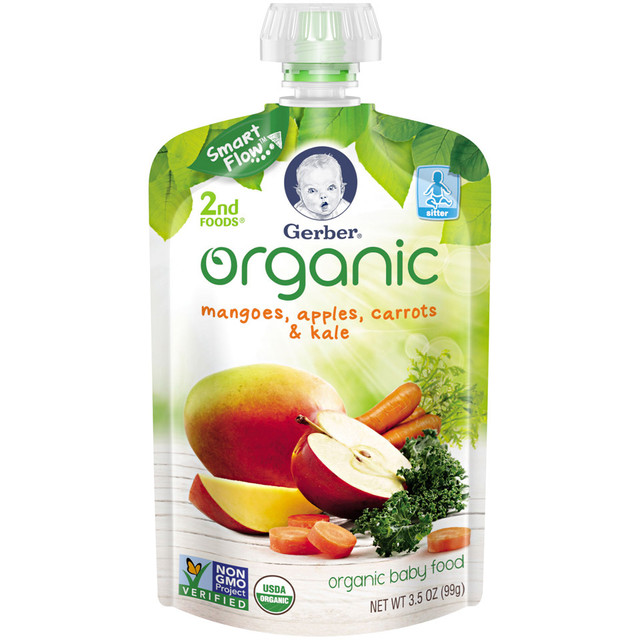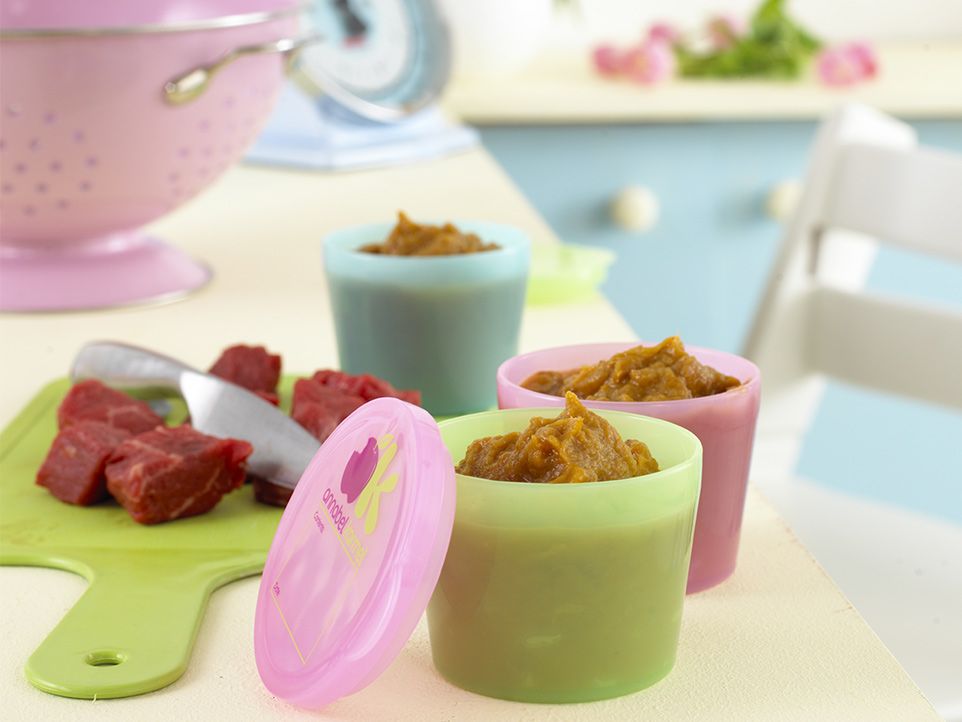Is it safe to use microwave for baby food
Once Baby Arrives - Food Safety for Moms to Be
Food Safety for Moms-To-Be Main Page
Send out those baby announcements - your bundle of joy has finally arrived! You've completed your first nine months of the journey. Now, here's how you, grandparents, and caregivers can help keep baby's food safe from here on...
En Español (Spanish)
Foodborne illness is a serious health issue, especially for your new baby and any other children in your home. Each year in the U.S., 800,000 illnesses affect children under the age of 10. Infants and young children are particularly vulnerable to foodborne illness because their immune systems are not developed enough to fight off foodborne bacterial infections. That's why extra care should be taken when handling and preparing their food.
Infants and young children are particularly vulnerable to foodborne illness because their immune systems are not developed enough to fight off foodborne bacterial infections. In fact, 800,000 illnesses affect children under the age of 10 in the U.S. each year.
Handwashing
Your First Step in Keeping Your Children Safe
Your hands can pick up bacteria and spread bacteria to your baby - for example, from:
- Diapers containing feces and urine
- Raw meat, poultry, seafood, and eggs
- Pets, such as dogs, cats, turtles, snakes, birds, and lizards.
- Soil
Washing your hands can remove harmful bacteria, so wash your hands often to help prevent foodborne illness. Also, teach your children how and when to wash their hands.
3 Critical Handwashing Steps
- Wet your hands thoroughly with warm water and add soap.
- Thoroughly scrub your hands, wrists, fingernails, and in between fingers - for at least 20 seconds.
- Rinse, then dry hands with a clean cloth towel or use a paper towel so the germs are thrown away.
"Washing hands is one of the most important actions parents can take to prevent foodborne illness in their children. " (FDA)
" (FDA)
When to Wash
- Before and after handling food.
- After using the bathroom, changing diapers, or handling pets.
Who's Not Washing?
According to a Penn State University study on mothers with infants less than four months old:
41% didn't wash their hands after petting animals;
32% didn't wash their hands after changing the baby's diaper;
15% didn't wash their hands after using the bathroom;
10% didn't wash their hands after handling raw meat;
5% didn't wash their hands after gardening or working with soil.
back to top
Foodborne Illness: When to Call the Doctor
Prevention is key to keeping your baby safe from infections. However, food-handling mistakes can happen. If your baby experiences any of the following symptoms, he or she may have foodborne illness and may need to see a doctor:
- Blood in diarrhea
- Prolonged, high fever
- Not taking fluids
- Not able to keep anything down due to vomiting
In these cases, take your baby to a doctor or healthcare provider immediately.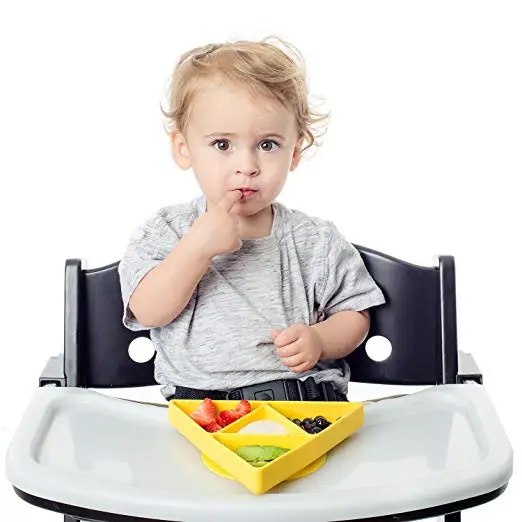 He or she can properly diagnose foodborne illness, have the specific bacteria identified if necessary, and prescribe the best treatment.
He or she can properly diagnose foodborne illness, have the specific bacteria identified if necessary, and prescribe the best treatment.
Handling Baby's Food Safely...
Protect your baby and young children by following these DOs and DON'Ts for preparing and handling their food safely.
DOs:
- Follow the manufacturer's recommendations for preparing bottles before filling them with formula or milk. Observe "use-by" dates on formula cans.
- Check to see that the safety button on the lid of commercial baby-food jars is down. If the jar lid doesn't "pop" when opened, don't use the product. Discard any jars with chipped glass or rusty lids.
- Use detergent and hot water to wash all blenders, food processors, and utensils (including the can opener) that come in contact with a baby's foods. Rinse well with hot water after washing.
- Transport bottles and food in an insulated cooler when traveling with the baby.
 Perishable items (milk, formula, or food) left out of the refrigerator or without a cold source for more than two hours should not be used. Cold temperatures keep most harmful bacteria from multiplying.
Perishable items (milk, formula, or food) left out of the refrigerator or without a cold source for more than two hours should not be used. Cold temperatures keep most harmful bacteria from multiplying. - Freeze homemade baby food by putting the mixture into an ice cube tray. Note: One cube equals one serving. Cover with heavy-duty plastic wrap and place the tray in the freezer. Once the food cubes are frozen, pop them into a freezer bag or airtight container and date it. Store for up to three months (discard unused food after three months). As an option, small jars can also be used for freezing. Leave about 1/2 inch of space at the top because food expands when frozen.
DON'Ts:
- Don't make more formula than you will need. Formula can become contaminated during preparation. If a large quantity of formula is prepared and not properly refrigerated, bacteria can multiply to very large numbers. The more bacteria there are, the greater the chances for foodborne illness.
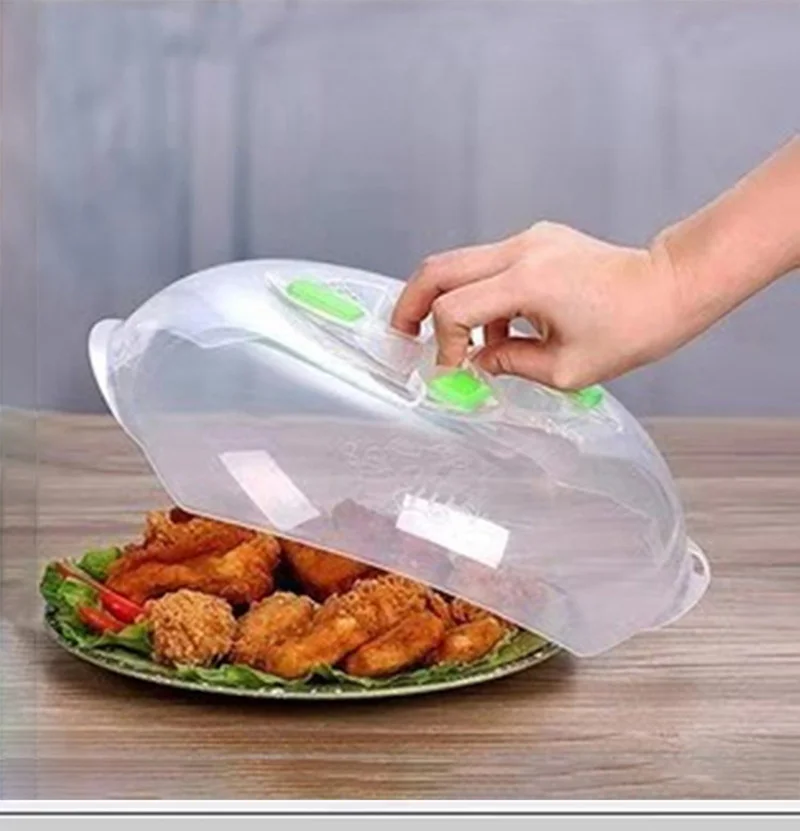 Preparing formula in smaller quantities on an as-needed basis greatly reduces the possibility of contamination. If using powder, reconstitute immediately before feeding. If using liquid concentrates or ready-to-feed products, follow label instructions provided by the manufacturer.
Preparing formula in smaller quantities on an as-needed basis greatly reduces the possibility of contamination. If using powder, reconstitute immediately before feeding. If using liquid concentrates or ready-to-feed products, follow label instructions provided by the manufacturer. - Don't put a bottle back in the refrigerator if the baby doesn't finish it. Harmful bacteria from a baby's mouth can be introduced into the bottle during feeding; they can grow and multiply even after refrigeration (some bacteria can grow at refrigerator temperatures) and reheating. The temperature that's needed to kill harmful bacteria is extremely high for consumption by a baby. Also, it's not a good idea to repeatedly reheat formula because lots of nutrients can be lost.
- Don't feed a baby from a jar of baby food and then put it in the refrigerator. Saliva on the spoon may contaminate the remaining food. Instead, put a serving size on a dish. Refrigerate the food remaining in the jar.
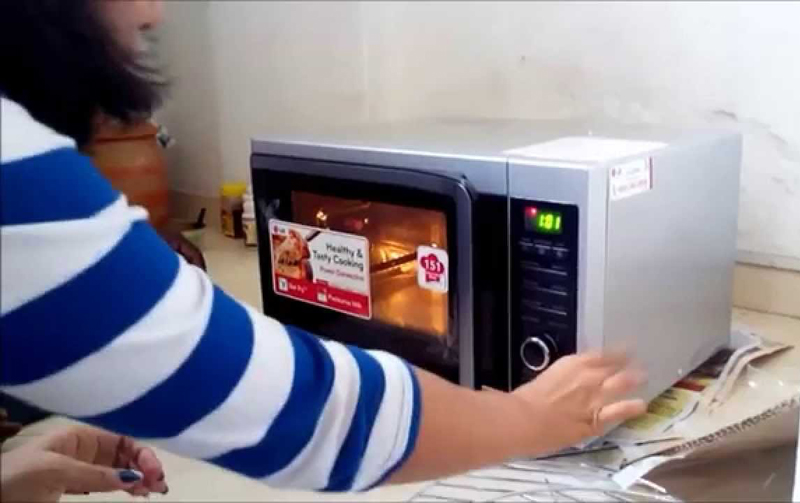 Throw away the food in the serving dish that's not eaten.
Throw away the food in the serving dish that's not eaten. - Don't use honey as a sweetener to entice babies to drink water from a bottle. Honey isn't safe for children less than a year old. It can contain the Clostridium botulinum organism that could cause serious illness or death.
- Don't give raw or unpasteurized milk or unpasteurized fruit or vegetable juice to infants or young children. Unpasteurized milk or juice may contain harmful bacteria. Unpasteurized juices are normally found in the refrigerated sections of grocery stores, health-food stores, cider mills, or farm markets. Such juices must have this warning on the label: WARNING: This product has not been pasteurized and therefore may contain harmful bacteria that can cause serious illness in children, older adults, and persons with weakened immune systems.
NOTE: Juices that are fresh-squeezed and sold by the glass, such as at farmer's markets, at roadside stands, or in some juice bars, may not be pasteurized, or otherwise treated to ensure their safety.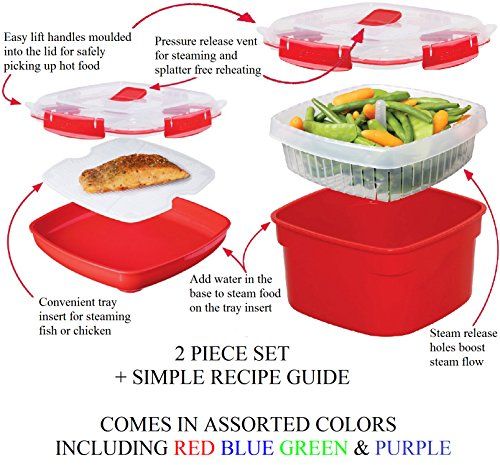 Warning labels are not required on these products. Young children should avoid these juices. If you can't tell if a juice has been processed to destroy harmful bacteria, either don't use the product or boil it to kill any harmful bacteria.
Warning labels are not required on these products. Young children should avoid these juices. If you can't tell if a juice has been processed to destroy harmful bacteria, either don't use the product or boil it to kill any harmful bacteria. - Don't leave formula out at room temperature for more than 2 hours. Harmful bacteria can grow rapidly in food at room temperature. Discard formula that's been left out for more than two hours.
- Don't place dirty diapers in the same bag with bottles or food. Harmful bacteria from a dirty diaper can spread to baby's food.
- Don't give infants "teas" brewed from star anise. Brewed "teas" containing star anise have been associated with illnesses affecting infants. The illnesses ranged from serious neurological effects, such as seizures, to vomiting, jitteriness, and rapid eye movement.
Two Ways to Heat Breast Milk or Formula
(for bottles with disposable inserts or hard plastic and glass bottles)
- In Hot Tap Water
Place bottle under hot, running tap water until the desired temperature is reached. This should take one-to-two minutes.
This should take one-to-two minutes. - On the Stove
Heat water in a pan. Remove the pan from the heat and set the bottle in it until it's warm.
Special Notes:
When heating baby's milk, always shake the liquid to even out the temperature and test on top of your hand - not the wrist (this is one of the areas least sensitive to heat) - before feeding. Milk that's "baby-ready" should feel lukewarm.
Heating breast milk or infant formula in the microwave is not recommended. Studies have shown that microwaves heat baby's milk and formula unevenly. This results in "hot spots" that can scald a baby's mouth and throat.
Safe Microwaving of Solid Foods
Studies show that the when baby food is microwaved in a jar, it's often heated unevenly. The hottest places are in the center of the foods. The coolest places are next to the glass sides, which could lead you to believe that the food is not too hot. Follow these precautions when microwaving baby's food.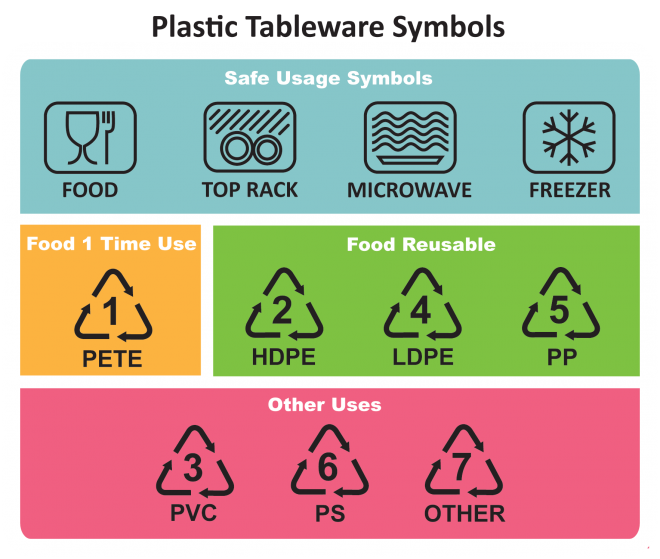
- Don't microwave baby foods in the jar. Instead, transfer the food to a dish before microwaving it. This way the food can be stirred and taste-tested for temperature.
- Microwave 4 ounces of solid food in a dish for about 15 seconds on high power. Always stir, let stand 30 seconds, and taste-test before feeding.
- Don't heat baby-food meats, meat sticks or eggs in the microwave. Use the stovetop instead. These foods have a high fat content, and since microwaves heat fats faster than other substances, these foods can cause splattering and overheating.
Special Note: When heating baby's food, always stir, let stand 30 seconds, and taste-test before feeding. Food that's "baby-ready" should taste or feel lukewarm.
How to Store Breast Milk
Careful home handling and storage of expressed breast milk is essential. Here’s how to safely store breast milk:
| Type of Breast Milk | Countertop 77°F (25°C) or colder (room temperature) | Refrigerator 40°F (4°C) | Freezer 0°F (-18°C) or colder |
|---|---|---|---|
| Freshly expressed or pumped | Up to 4 hours | Up to 4 days with clean expression technique* | **Use within 6 months is best; |
| Thawed, previously frozen | 1–2 hours | Up to 1 day | Never refreeze breast milk after it has thawed |
| Leftover from a feeding(baby did not finish the bottle) | Once it has been offered to the infant, use leftovers within 2 hours or discard leftovers | Once it has been offered to the infant, use leftovers within 2 hours or discard leftovers | Once it has been offered to the infant, use leftovers within 2 hours or discard leftovers |
*Important: Before you express breast milk, wash your hands with soap and water.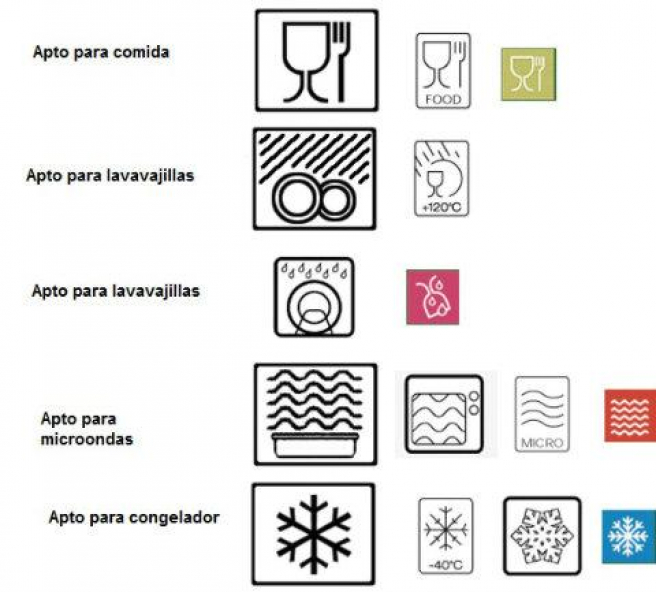 If soap and water are unavailable, use an alcohol-based hand sanitizer that contains at least 60% alcohol. Make sure the area where you are expressing and your pump parts and bottles are clean. Breasts and nipples do not need to be washed before pumping.
If soap and water are unavailable, use an alcohol-based hand sanitizer that contains at least 60% alcohol. Make sure the area where you are expressing and your pump parts and bottles are clean. Breasts and nipples do not need to be washed before pumping.
** Date your milk when you freeze it. Store breast milk in the back of the freezer, not in the freezer door. The door is the warmest spot in the freezer. This helps prevent unintentionally defrosting the milk, which can happen with frequent openings and closings of the door.
See CDC’s webpage on Proper Storage and Preparation of Breast Milk for additional information on storing, thawing, and feeding breast milk.
Safe Storage of Baby Food
| Liquids (other than breast milk) | Refrigerator | Freezer |
|---|---|---|
| Formula (stored in individual baby bottles) | 2 days | Not recommended |
| Whole milk | 5 days | 3 months |
| Reconstituted evaporated milk | 3 to 5 days | Not recommended |
| SOLIDS - opened or freshly made | Refrigerator | Freezer |
|---|---|---|
| Strained fruits and vegetables | 2 to 3 days | 6 to 8 months |
| Strained meats and eggs | 1 day | 1 to 2 months |
| Meat/vegetable combinations | 1 to 2 days | 1 to 2 months |
| Homemade baby foods | 1 to 2 days | 3 to 4 months |
Important Tips to Remember for Baby.
 ..
..- Don't leave baby food solids or liquids out at room temperature for more than two hours.
- Don't put a bottle or baby-food back in the refrigerator if the baby doesn't finish it.
- To reduce the risks of choking, be watchful of babies and young children while they are eating, and teach children to chew their food well.
(In addition, the American Academy of Pediatrics recommends that children younger than 4 years old not be fed any round, firm food unless it is cut into small pieces no larger than one-half inch.)
For more on choking, see MedlinePlus: Choking - Remember the Seven Things Pregnant Women and Parents Need to Know About Arsenic in Rice and Rice Cereal
For more information about infant formula and how to report problems, see Infant Formula.
Additional Information
- Infant and Toddler Nutrition (CDC)
back to top
Is It Safe to Cook or Heat Baby's Food in a Microwave?
Many people believe that heating or cooking food in a microwave can destroy the nutrients present in that food items. But that is not true…well, not completely true. You cook, heat, and sometimes even reheat the food (leftovers) in the microwave and eat it without giving it much thought. But when you have a baby in your house, you give a serious consideration to it. You must be thinking if you can heated baby food in a microwave or not. To find answers to this thought of yours, read this article. Find out if heating or cooking baby food in a microwave is a good or bad idea.
But that is not true…well, not completely true. You cook, heat, and sometimes even reheat the food (leftovers) in the microwave and eat it without giving it much thought. But when you have a baby in your house, you give a serious consideration to it. You must be thinking if you can heated baby food in a microwave or not. To find answers to this thought of yours, read this article. Find out if heating or cooking baby food in a microwave is a good or bad idea.
Can You Use a Microwave for Cooking or Heating Your Baby’s Food?
Any raw food which undergoes a process of cooling or heating has a change in its physical characteristics, chemical structure, and nutritional form. Usually, moms tend to be in a dilemma when it comes to using a microwave for cooking or heating baby food. But there is no research to prove that cooking or heating baby food in a microwave can be detrimental to the health of the baby. But there are certain things you need to bear in mind while cooking or heating baby food in the microwave.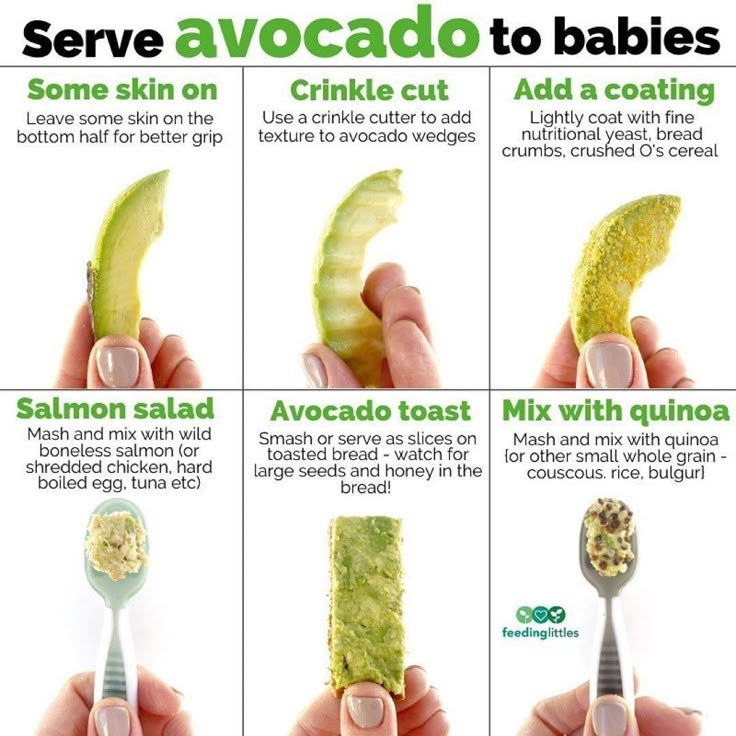 Always cover baby food with a lid when heating it in the microwave. Also, avoid using plastic containers for heating as it can transfer harmful chemical to the food. Use microwave-safe containers but not plastic. And do not heat up leftover food of the baby.
Always cover baby food with a lid when heating it in the microwave. Also, avoid using plastic containers for heating as it can transfer harmful chemical to the food. Use microwave-safe containers but not plastic. And do not heat up leftover food of the baby.
Risks of Cooking or Heating Baby Food in a Microwave
Following are the risks associated with cooking or heating baby food in a microwave.
- Microwaves heat up the food unevenly. The temperature in some portion of the food may seem just right whereas some portions may be very hot forming “hot pockets” which can burn a baby’s mouth.
- Use of cheap plastic while heating or cooking baby food in a microwave can prove harmful to a baby’s health.
- It is believed that the radiation emitted during the cooking or heating process in a microwave can cause serious health problems.
Precautions while Using a Microwave to Cook Infant Food
Listed below are some precautions that parents need to take while using a microwave to cook food for a baby:
- Use microwave-safe containers or heat-resistant glass containers to cook or heat baby food.
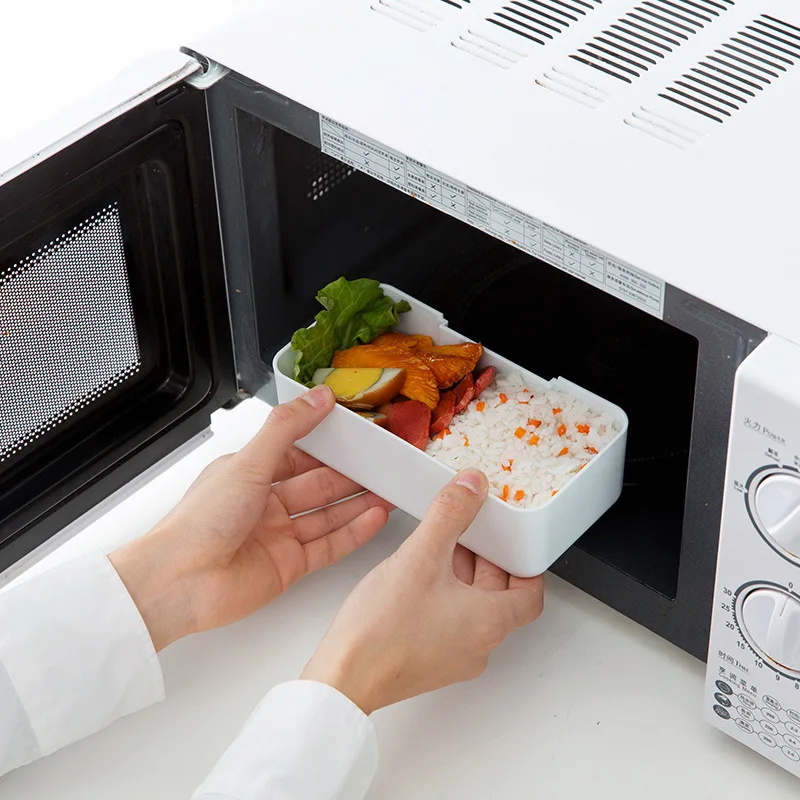 Plastic containers are best avoided.
Plastic containers are best avoided. - Cover the food with a glass plate or lid while cooking or heating the food. It will help in retaining the moisture in the food.
- Make sure to cook or heat the food well. It will kill the bacteria, if any, and cause food poisoning to the infant.
- Do not keep the food to cook or heat while you go about your chores in order to avoid burning the food.
- After taking the food out, transfer it to another utensil. Then stir it well so that there are no air pockets left which may scald the baby’s mouth while eating.
Safety Tips for Reheating Baby Food in a Microwave
A common question that most moms ask is, “can you heat baby formula in a microwave”? Of course, you can if you use a microwave-safe bottle or container to heat it. Also, remember to heat it in medium temperature for not more than 10-15 seconds. Before giving it to your baby, shake the bottle well so that the temperature gets equal. Apart from this, there are other tips which one should follow for reheating baby food in a microwave.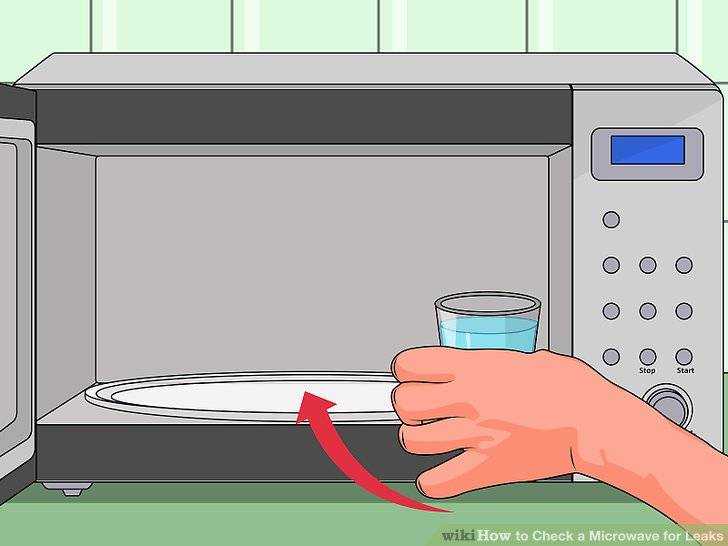
- First and foremost, always use microwave-safe baby food containers to reheat your baby’s food in order to avoid any kind of health issues.
- Use a microwave which can cook and reheat your baby’s food well.
- Always read and follow the literature manual that comes with the appliance to avoid any mishaps.
- You should always preheat the microwave before reheating your infant’s food.
- When food is heated, it gets very hot at the edges and remains cold at the centre. Therefore, stir it at different stages to heat it uniformly.
- Reheating means to keep the food in the microwave until it is piping hot. This will help in destroying all the bacteria that may be there in the food.
- Remember to check the temperature of the food before giving it to your baby so as not to scald your baby’s mouth.
- Reheating should not be done more than once. The leftover should be thrown away even if you feel bad to waste it.
Tips to Thaw or Defrost Baby Food in a Microwave
After the first 6 months are over, babies start taking semi-solids.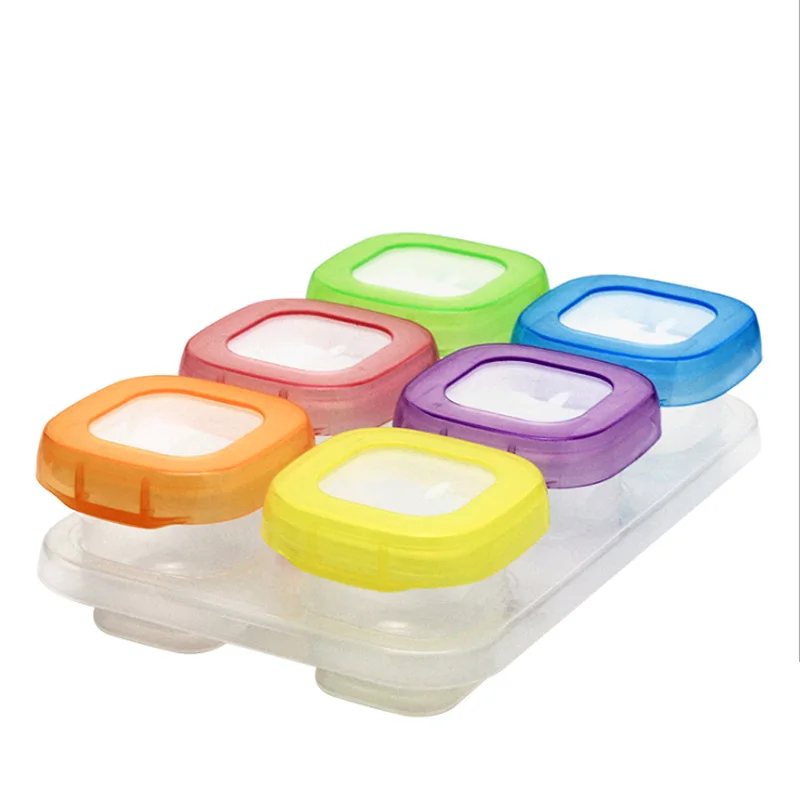 From heating milk in the microwave for babies, mommies start cooking food for their little ones. This is when tips to thaw or defrost baby food in a microwave come in handy. Listed below are few of them to help you sail through.
From heating milk in the microwave for babies, mommies start cooking food for their little ones. This is when tips to thaw or defrost baby food in a microwave come in handy. Listed below are few of them to help you sail through.
- Always defrost or thaw baby food using a microwave-safe container, preferably a microwave-resistant glass container.
- Do not use any plastic containers since they may give out harmful chemicals which may prove to be detrimental to the baby’s health.
- Use a microwave that has defrost settings to thaw or defrost baby food.
- Rotate the container manually from time to time if your microwave does not have a rotating table.
- Stir it several times while thawing it to avoid any hot spots in the food.
- In order to thaw the frozen food cubes, you need to put the microwave in the defrost mode for 30 – 40 seconds.
- After the frozen food is defrosted or thawed, heat it immediately, or else bacteria may start thriving.

- Heat the defrosted food thoroughly for 5 to 15 seconds so that it turns piping hot.
- Keep the hot food aside till the food temperature is appropriate for the baby to eat.
- Test the temperature beforehand in case it is too hot for your baby.
Although there are no studies or research to prove that food heated or cooked in a microwave is harmful to your baby, it is best to use it sparingly.
Also Read: Best Foods To Feed Your Baby
Microwave baby food: can or can't be reheated
Microwave baby food is easy to reheat - saves a lot of time. Just a couple of minutes, and the job is done: milk, porridge or mashed potatoes are warm. But mothers are worried: does food become harmful if it is heated in a microwave oven? There are so many conflicting rumors about the influence of microwaves - what is true and what is fiction?
Useful or harmful
Microwave ovens have settled in almost every kitchen, save time for their owners, facilitate kitchen chores.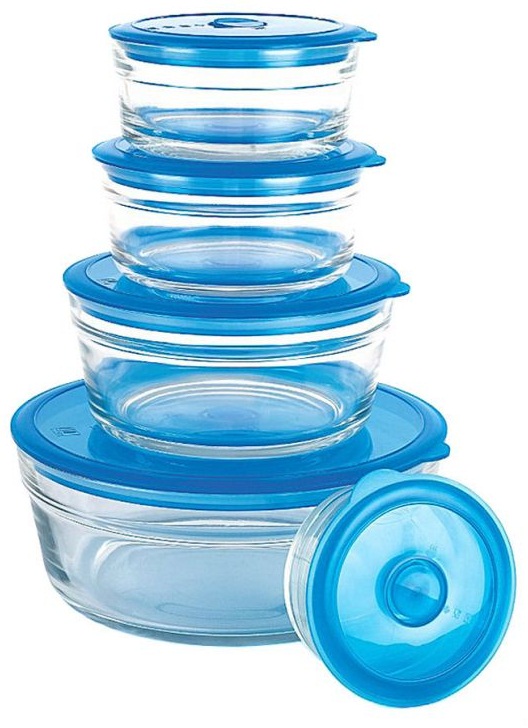 The operation of a microwave oven is based on the action of electromagnetic waves. Microwaves are harmful to humans, so there is debate about the usefulness of food prepared with their help. Many scientists claim that food from a microwave oven is completely safe, stories about the remnants of radiation in it are a myth. The power is too low to somehow affect the body. nine0003
The operation of a microwave oven is based on the action of electromagnetic waves. Microwaves are harmful to humans, so there is debate about the usefulness of food prepared with their help. Many scientists claim that food from a microwave oven is completely safe, stories about the remnants of radiation in it are a myth. The power is too low to somehow affect the body. nine0003
Users ask if vitamins are preserved in the microwave. Yes, and there are more of them than in food prepared in the usual way. The reason is the short duration of the process. Dishes are prepared many times faster, less useful substances are destroyed. Another positive point is that there is no need to add oils and fats, so the food turns out to be dietary, almost like in a double boiler.
About breast milk
Breastfeeding mothers wonder if breast milk can be heated in the microwave. Definitely - no! Expressed milk must not be heated with microwaves. They act on immunoglobulins and other living components, kill them or at least change their structure.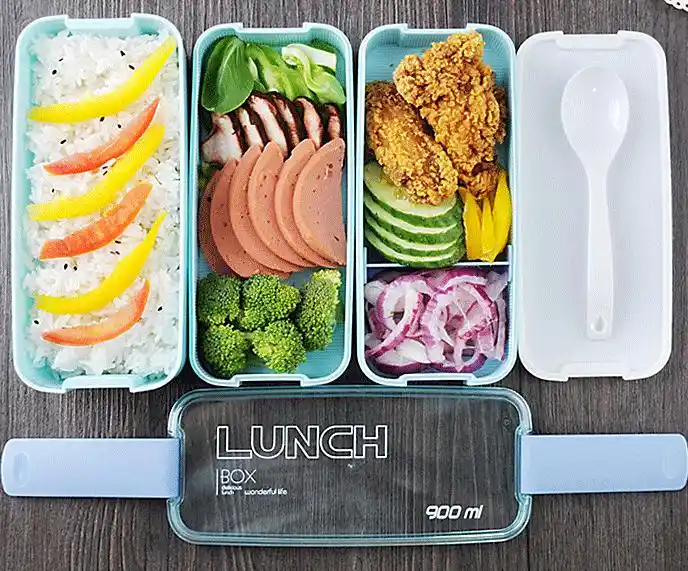 You will get from the cell not priceless food, but a little useful liquid, comparable to cow's milk. nine0003
You will get from the cell not priceless food, but a little useful liquid, comparable to cow's milk. nine0003
Heating of mother's milk in the microwave chamber is strictly prohibited - it is heated only in warm water, in a water bath.
Is it possible to heat artificial mixtures
If you need to heat artificial food, it is better to use the old proven method - hot water. But you can still take advantage of the microwave oven: heat water in it, in which you put milk or baby puree.
If you need to warm up a bottle of formula in a café, ask for a large cup of hot water. Put the bottle in it and heat the mixture. nine0003
What pediatricians and gastroenterologists say
Children's doctors advise parents not to heat formula or heat milk in the microwave. In general, you should not cook food for kids in it - in any form, doctors insist. Disputes about the dangers of microwaves are ongoing, which means that it is not worth risking the health of a child. Manufacturers do not mention in the instructions for microwave ovens the possibility of using them for baby food.
Manufacturers do not mention in the instructions for microwave ovens the possibility of using them for baby food.
Gastroenterologists are categorical in terms of breast milk: heating it with microwaves means radically changing the structure. Amino acids of L-proline are transformed into toxic d-isomers. These connections:
- disrupt the functioning of the kidneys;
- harm the nervous system.
Which bottles are best
Mothers pour their baby formula into bottles made of glass or plastic. It is recommended to use glass - they are safer. As it turned out, the plastic container contains bisphenol-A. When the plastic heats up, the phenol molecules are released and enter the contents. Animal studies have shown that after regularly eating food from heated plastic, health deteriorated. The impact on people has not been studied, but there is a risk - it is better to abandon plastic containers. nine0003
Polycarbonate dishes should not be boiled, microwaved or even washed in a dishwasher.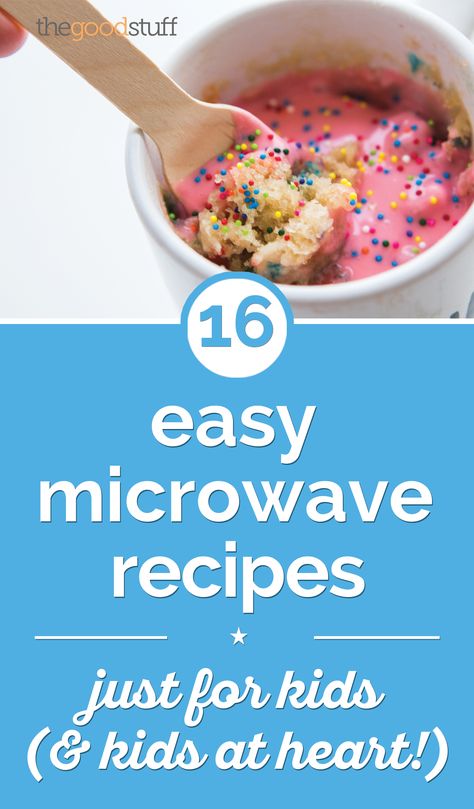
Take care of your baby, try to use the microwave oven only in extreme cases.
Cooking baby food in the microwave. Is it possible to heat baby food in the microwave
In today's society, every fourth family uses household appliances, because they help us save time. For example, a microwave oven is an indispensable tool for young mothers. After all, it is so convenient to heat baby puree, formula or breast milk in the microwave in just a few seconds and feed the baby. nine0003
But what happens to baby food when exposed to microwaves? How does microwave food affect a child's body? These and many other questions regarding the harm and benefits of a microwave oven are of concern to many mothers. Some argue that microwaves do no harm to food, others believe that they destroy vitamins and deprive food of useful properties.
We decided to write this article after we received a letter from our regular reader who writes...
“Hello, website editors! My name is Irina. Four months ago, I became a mother. I feed my baby with breast milk, but from 6 months, I plan to introduce complementary foods in the form of mashed potatoes into the child's diet. And I had a question: is it possible to heat baby puree in the microwave or, like our grandmothers, heat everything in a water bath? It is important for me to understand whether baby food loses its beneficial properties when heated in the microwave, and whether waves affect food in a negative way?”
Four months ago, I became a mother. I feed my baby with breast milk, but from 6 months, I plan to introduce complementary foods in the form of mashed potatoes into the child's diet. And I had a question: is it possible to heat baby puree in the microwave or, like our grandmothers, heat everything in a water bath? It is important for me to understand whether baby food loses its beneficial properties when heated in the microwave, and whether waves affect food in a negative way?”
So is it still possible to heat baby puree in the microwave? We offer together to understand this difficult issue and, perhaps, dispel some myths. In any case, you and only you, dear mothers, decide whether to listen to our recommendations or not.
Myth #1 Microwaves emit radioactive waves.
This is an erroneous statement. Because the waves belong to the group of non-ionizing, and there can be no radioactive impact. They in no way affect either food or the human body as a whole.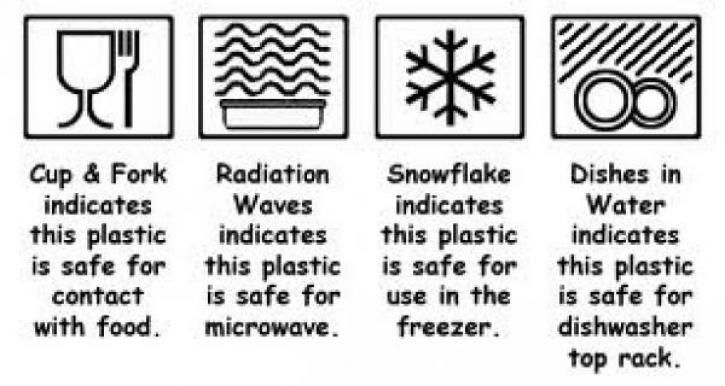 nine0003
nine0003
Myth #2 Exposure to microwaves changes the molecular structure of foods and they become carcinogenic.
Fortunately, this is not true either. To make a product carcinogenic is subject only to X-ray or ionizing waves. Carcinogenic substances are also released when foods are fried in hot oil. What doesn't happen when you reheat baby puree.
Myth #3 Magnetic radiation from microwaves
In fact, we are exposed to magnetic radiation every day: televisions, computers, mobile phones, radios, etc. Microwaves are no exception. Yes, its waves are more powerful, but, due to the "smart" device of the furnace and screened grids, the radiation remains inside. nine0003
Neither the walls of the cabinet, nor the doors, nor the food placed inside are capable of accumulating electromagnetic radiation of microwaves. And as soon as the oven stops working, the microwaves disappear. Waves can harm health only with a direct impact on some part of the body.
Scientists' opinions about the dangers and benefits of microwaves
For 25 years, scientists have been studying the effects of waves on the human body.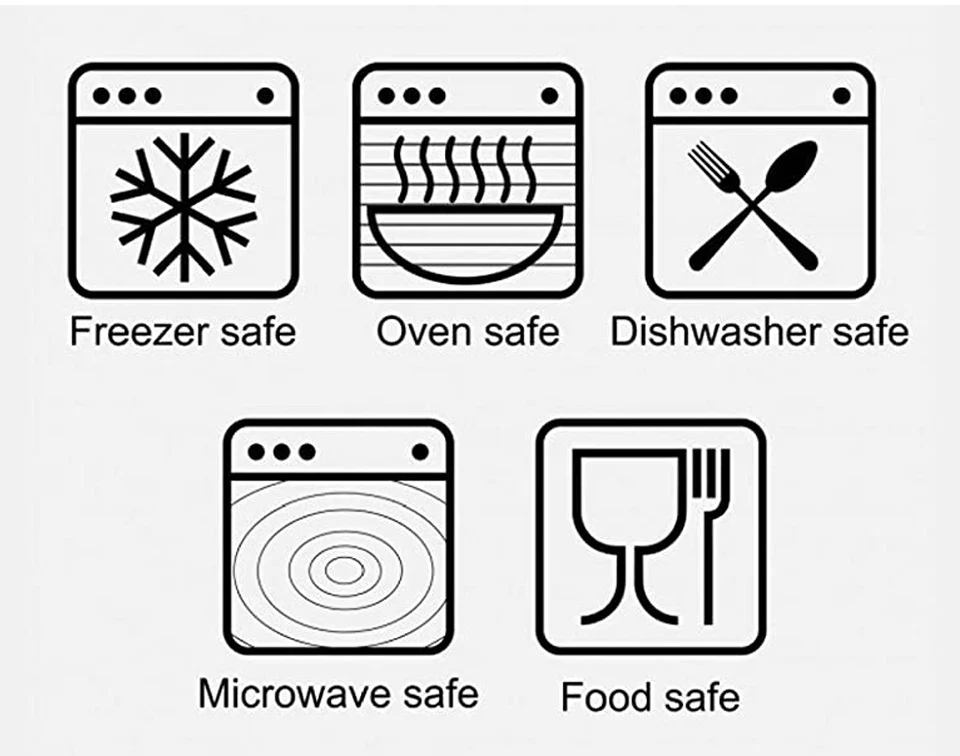 As a result of experiments, it was proved that food cooked or heated in the microwave does not lose its beneficial properties at all. And in some cases, on the contrary, it is more useful and less high-calorie, since it does not require the addition of oil when cooking, unlike food cooked in a pan. nine0003
As a result of experiments, it was proved that food cooked or heated in the microwave does not lose its beneficial properties at all. And in some cases, on the contrary, it is more useful and less high-calorie, since it does not require the addition of oil when cooking, unlike food cooked in a pan. nine0003
In addition, products retain 2-3 times more vitamins, as they are not subjected to prolonged heat treatment, and the cooking method is more like steam.
WHO has disproved the theory that microwaves are harmful to health. However, some baby food manufacturers advise against heating baby puree, formula, and milk in the microwave. Arguing that the microwave oven does not heat the food evenly. As a result, areas with high temperature are formed, which can burn the child. But you must admit that unevenly heated mashed potatoes can simply be mixed, and a child can get burned on food heated in any other way, if you do not pay enough attention to this. So this argument is probably weak.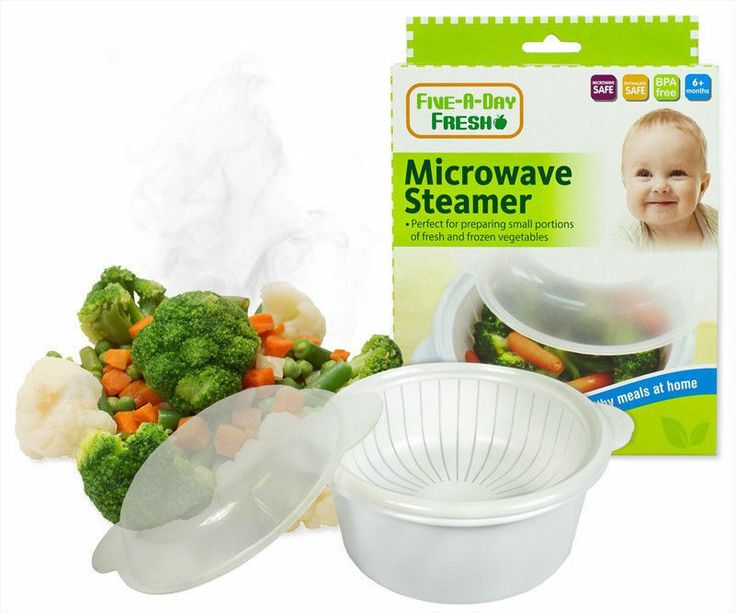 nine0003
nine0003
Can breastmilk be heated in the microwave?
But breast milk is not so simple. Mother's milk has unique vitamins and microelements that cannot be replaced by even the best mixture. And young mothers should know that in areas with high temperatures, the destruction of useful components, such as immunoglobulins, occurs. What makes breast milk less healthy. Therefore, mother's milk, unlike baby puree, will be better heated in a water bath. nine0003
It is convenient to reheat baby food in the microwave - it saves a lot of time. Just a couple of minutes, and the job is done: milk, porridge or mashed potatoes are warm. But mothers are worried: does food become harmful if it is heated in a microwave oven? There are so many conflicting rumors about the influence of microwaves - what is true and what is fiction?
Microwave ovens have settled in almost every kitchen, saving time for their owners, making kitchen chores easier. The operation of a microwave oven is based on the action of electromagnetic waves. Microwaves are harmful to humans, so there is debate about the usefulness of food prepared with their help. Many scientists claim that food from a microwave oven is completely safe, stories about the remnants of radiation in it are a myth. The power is too low to somehow affect the body. nine0003
Microwaves are harmful to humans, so there is debate about the usefulness of food prepared with their help. Many scientists claim that food from a microwave oven is completely safe, stories about the remnants of radiation in it are a myth. The power is too low to somehow affect the body. nine0003
Users ask if vitamins are preserved in the microwave. Yes, and there are more of them than in food prepared in the usual way. The reason is the short duration of the process. Dishes are prepared many times faster, less useful substances are destroyed. Another positive point is that you do not need to add oils and fats, so the food turns out to be dietary, almost like in a double boiler.
About breast milk
Breastfeeding mothers ask if breast milk can be heated in the microwave. Definitely - no! Expressed milk must not be heated with microwaves. They act on immunoglobulins and other living components, kill them or at least change their structure. You will get from the cell not priceless food, but a little useful liquid, comparable to cow's milk.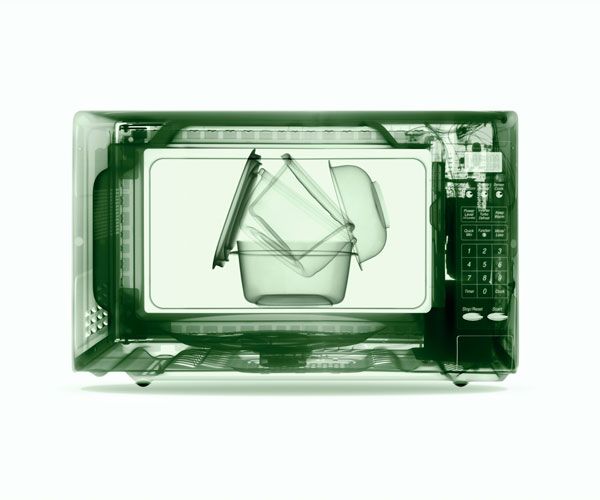 nine0003
nine0003
Heating of mother's milk in the microwave chamber is strictly prohibited - it is heated only in warm water, in a water bath.
Is it possible to heat artificial mixtures
If you need to warm artificial food, it is better to use the old proven method - hot water. But you can still take advantage of the microwave oven: heat water in it, in which you put milk or baby puree.
If you need to warm up a bottle of formula in a café, ask for a large cup of hot water. Put the bottle in it and heat the mixture. nine0003
What pediatricians and gastroenterologists say
Pediatricians do not advise parents to heat formula or heat milk in the microwave. In general, you should not cook food for kids in it - in any form, doctors insist. Disputes about the dangers of microwaves are ongoing, which means that it is not worth risking the health of a child. Manufacturers do not mention in the instructions for microwave ovens the possibility of using them for baby food.
Gastroenterologists are categorical in terms of breast milk: heating it with microwaves means radically changing the structure. Amino acids of L-proline are transformed into toxic d-isomers. These connections:
- disrupt the functioning of the kidneys;
- harm the nervous system.
Which bottles are better
Mom's formula is poured into bottles made of glass or plastic. It is recommended to use glass - they are safer. As it turned out, the plastic container contains bisphenol-A. When the plastic heats up, the phenol molecules are released and enter the contents. Animal studies have shown that after regularly eating food from heated plastic, health deteriorated. The impact on people has not been studied, but there is a risk - it is better to refuse plastic containers. nine0003
Polycarbonate dishes should not be boiled, microwaved or even washed in a dishwasher.
Take care of your baby, try to use the microwave oven only in extreme cases.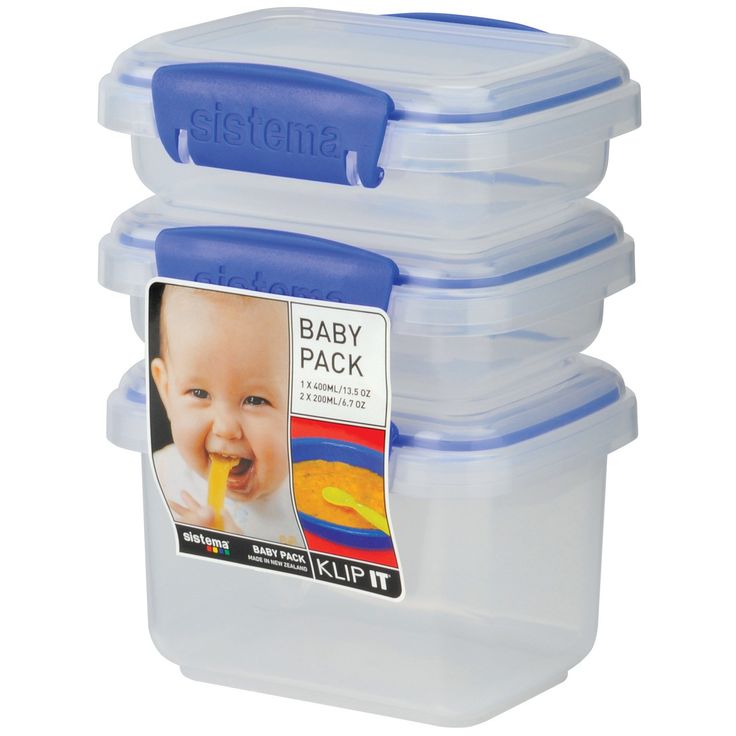
With incredible difficulty, I opened my eyes and tried to see what time it was, the luminous numbers on the electronic clock seemed blurry, and it took me time to focus my vision and see them - it's time to feed Artyomka. I slowly got up and went to the kitchen to heat up the infant formula. Then I remember everything, like in a fog, I took out the mixture, poured it into a baby bottle, added water and put it in the microwave, at that moment, without even thinking about whether it was possible to heat the baby formula in the microwave. nine0003
But I still had to look into this issue, a little later, when my mother scolded me for my indiscretion, firmly convinced that the use of a microwave oven to heat baby food is harmful and categorically unacceptable. So I wondered how it really is, is it possible to heat baby formula, breast milk, mashed potatoes and other baby food in the microwave?
Can breast milk be heated in the microwave?
It's time to admit to yourself that all the stories about the dangers of microwave ovens are a myth, and food heated in it does not harm our health. However, some products, for various reasons, are still not recommended for heating in the microwave. nine0003
However, some products, for various reasons, are still not recommended for heating in the microwave. nine0003
One such product that is not recommended for microwave heating is breast milk.
The fact is that when heated in a microwave oven, part of the immunoglobulins and vitamins, the content of which is unmatched in breast milk, is destroyed. And from this, of course, mother's milk becomes less useful.
Can infant formula be heated in the microwave?
But in this question, you need to draw your attention to what exactly you want to do. nine0003
If you need to heat water in the microwave and dilute infant formula in it, then you can safely do it.
But it is not necessary to heat up the pre-prepared mixture.
And the point here is not at all in the microwave, it's just that almost all baby food manufacturers write on packages with the mixture that you need to use it immediately after preparation. Manufacturers do not recommend leaving the milk mixture for later, even if in the refrigerator, and then reheating it. nine0003
nine0003
Can baby puree be heated in the microwave?
All the myths that a microwave oven emits radioactive waves, changes the molecular structure of foods and makes them carcinogenic, are complete nonsense. There is not a single confirmation of these myths, and on the contrary, all the studies conducted over the past quarter century indicate the opposite.
Therefore, I would like to assure all mothers who are worried about the health of their children - you can heat baby puree in the microwave.
The only thing I would like to remind you is that before you start feeding the baby puree heated in the microwave, it must be mixed and tasted, as the product may heat up unevenly and the baby will burn. nine0003
Can milk be heated in the microwave?
You can heat cow's milk in the microwave.
If you decide to heat cow's milk in the microwave, you can be calm, it will not bring any harm to your health. But the benefits, most likely, too. And the point here is not at all in the microwave, but in the fact that before getting to the store counter, the milk is already processed and pasteurized in the factory. And of course, it is already difficult to talk about its naturalness and usefulness after that. nine0003
And of course, it is already difficult to talk about its naturalness and usefulness after that. nine0003
It's different when it comes to breast milk that you have expressed and now decide to warm it up. Of course, this is not worth doing. About why, we already wrote in this article, a little higher.
Is it possible to heat kefir in the microwave?
If we consider the question of whether it is possible to heat kefir in the microwave, from the point of view of preserving the benefits of the product, we are convinced that this is the most important aspect in preparing food for a child.
Then the answer will be negative, heating kefir in the microwave is undesirable. nine0013
Since most of the beneficial microorganisms, including lacto and bifidobacteria, die when heated. And even such a small temperature as 38-40 degrees becomes critical for their survival. But in a microwave oven, the product heats up unevenly, and in some places the temperature reaches much higher marks.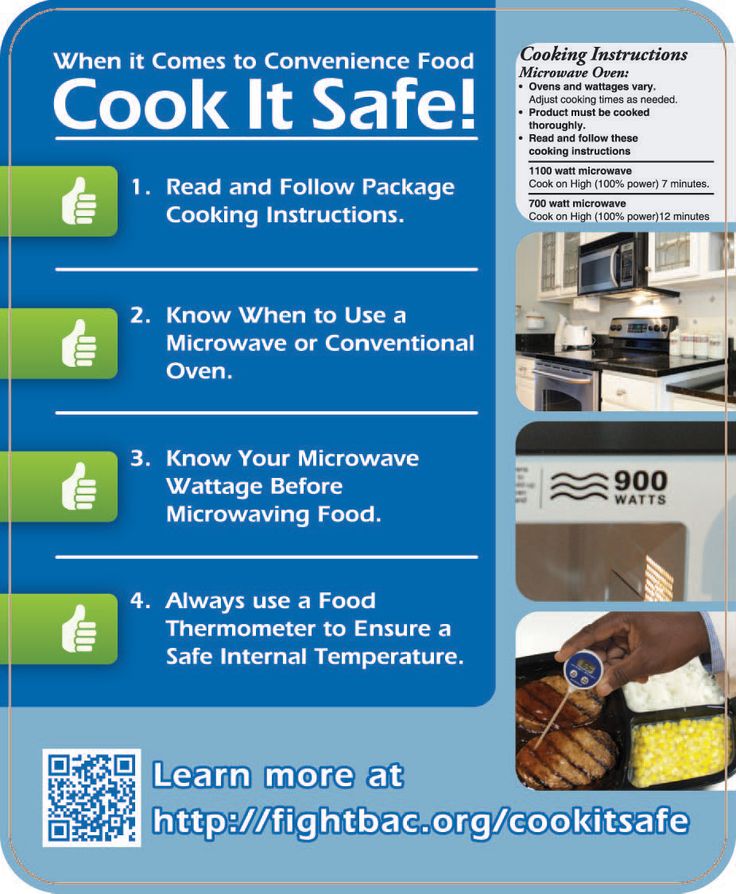
If the preservation of the beneficial properties of kefir is not in the first place for you, then you can heat it in the microwave. At the same time, of course, it will lose some of its useful microorganisms, but still it will not become completely useless. But remember that with rapid heating, kefir can curdle. Therefore, when heating kefir in a microwave oven, you should not do it longer than 10-15 seconds. If this is not enough, you can take it out of the microwave, mix it well and put it on for another 10-15 seconds. nine0003
Can cottage cheese be heated in the microwave?
Almost all fermented milk products contain beneficial bacteria - probiotics. It is they that increase the activity of immune cells, produce antibodies against pathogenic bacteria and inhibit the growth of harmful microbes, thereby creating a balance in the intestinal microflora.
Unfortunately, when heated, probiotics die, so it is undesirable for a child to heat cottage cheese in the microwave.
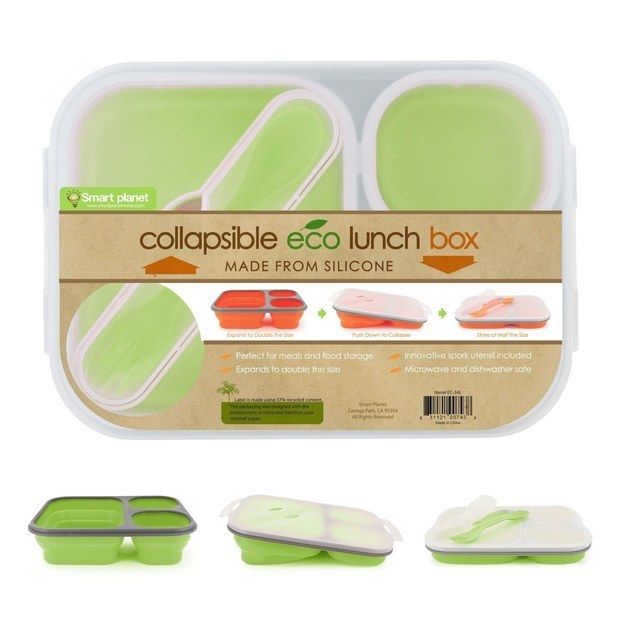
Heating cottage cheese in a microwave oven significantly reduces the beneficial properties of the product. In addition, this is not particularly necessary, because few children like cottage cheese in a warm form. It will be enough just to get the cottage cheese out of the refrigerator and let it stand for 30-40 minutes at room temperature. nine0003
Can yogurt be heated in the microwave?
However, like kefir, cottage cheese, and any other fermented milk products. We already wrote about this a little higher - it's all about beneficial bacteria that die when exposed to high temperatures.
If you do decide to use the microwave to warm up the yogurt, remember to remove the foil cap from the packaging. Foil is essentially a thin layer of metal, and the use of metal objects in a microwave oven is not acceptable, and may cause damage to it. nine0003
Can I heat a baby bottle in the microwave?
Well, we sort of figured out which foods can be heated in the microwave and which can't.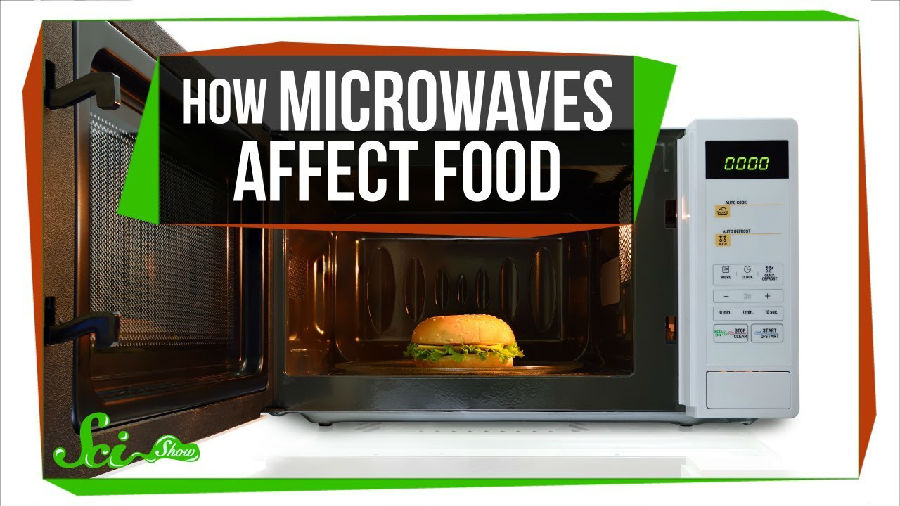 But any mother, sooner or later, will have a question, is it possible to heat food for a child right in a baby bottle? Unfortunately, there is no unequivocal answer to this question, here you need to proceed from the manufacturer's recommendations indicated on the package.
But any mother, sooner or later, will have a question, is it possible to heat food for a child right in a baby bottle? Unfortunately, there is no unequivocal answer to this question, here you need to proceed from the manufacturer's recommendations indicated on the package.
But I want to assure you that in our time, most manufacturers of baby bottles use only high-quality materials and plastics that are allowed to be heated in the microwave. nine0013
It is worth paying attention to this even at the time of purchase, it will save you from unnecessary problems in the near future and make life much easier.
Can I heat baby food in the microwave?
Wow, this is just warming up - as other authors write in the answers. This is not heating, this is an acceleration of the movement of water molecules that rub against each other, hence heat arises. But water changes its structure. Then all this in the children's body. This is undesirable even for adults. nine0003
For a small child, it is better to prepare fresh formula rather than reheating old formula.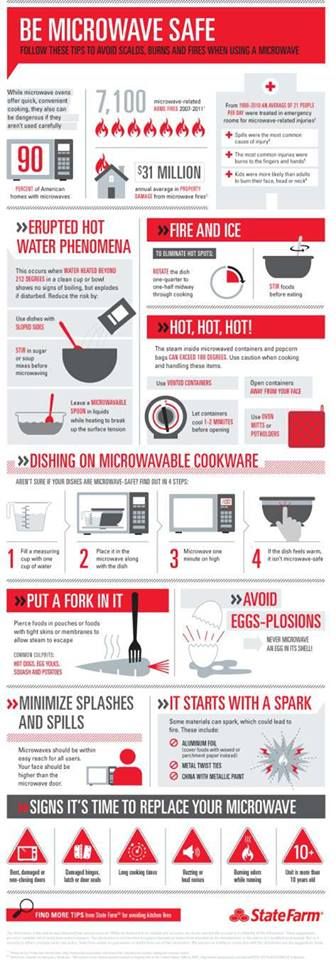 But if there is no time to prepare a new mixture, then you can also heat up the old one, but it’s better to heat it in a water bath on the stove, and not in the microwave, because excessive electromagnetic fields are harmful even to adults, and not just to a small child. Now they write a lot about the dangers of microwaves and cell phones and computers - all these devices should be in our lives, but dosed so that the harmful effect of the electromagnetic field is not every second - you need to give the body a rest from increased electromagnetic influences. nine0003
But if there is no time to prepare a new mixture, then you can also heat up the old one, but it’s better to heat it in a water bath on the stove, and not in the microwave, because excessive electromagnetic fields are harmful even to adults, and not just to a small child. Now they write a lot about the dangers of microwaves and cell phones and computers - all these devices should be in our lives, but dosed so that the harmful effect of the electromagnetic field is not every second - you need to give the body a rest from increased electromagnetic influences. nine0003
If you mean milk mixtures, then you can’t leave them even for 30 minutes after eating. If this is how you prepare the mixture, then it is better to heat water in the microwave and pour your mixture already warm. Well, if these are porridge-soups for an already independent little man from 1 year and older, then why not. In any case, this is how I often warm up food for my sons. And if you are afraid of radiation, then against the background of all mobile, television and other from existing household appliances, these are not such strong rays.



